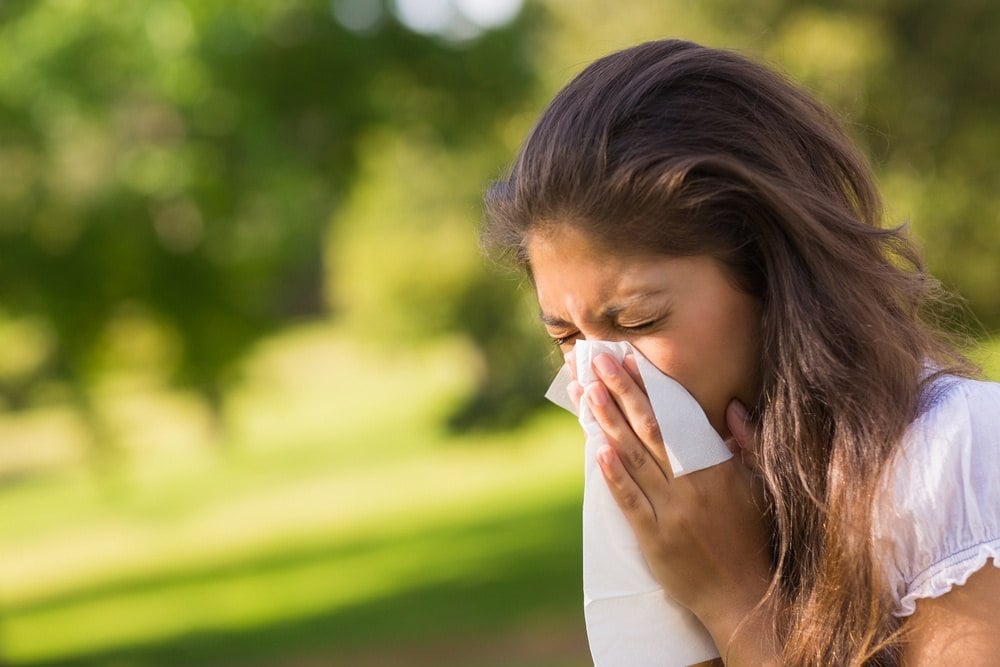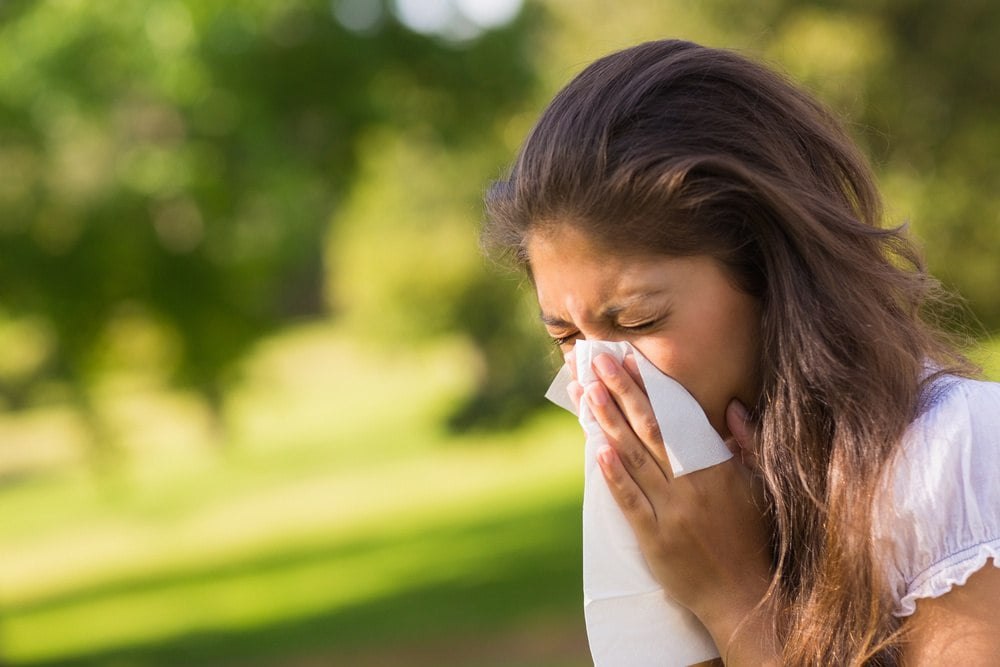Most Common Allergens (Allergies) in Houston, Texas
March 9th, 2018 | 4 min. read


Allergy season is bad each year in Houston. And, according to Houston Chronicle article, Dr. Joshua Septimus, an internist associated with Weill Cornell Medical School and Houston Methodist Hospital, hasn't seen a year yet that wasn't severe. It's really about to what degree of severity it is.
The overall allergic rhinitis prevalence worldwide has been trending higher over the past 30 years — even more in developing countries. Allergies, however, are more commonplace in the U.S. The Asthma and Allergy Foundation of America estimates allergic rhinitis affects around 20 million adults and 6.1 million children.
This upward trend has no clear explanation, however, there is the "hygiene" theory which implies if you can limit bacteria exposure in early childhood, this could make it so the immune system later on in life becomes more reactive to often harmless agents like dust mites or pollen. Also, bacteria exposure is being significantly reduced through the use of antibacterial agents in everyday products like hand soap and wipes.
Allergic rhinitis is characterized by symptoms such as:
-
Sneezing
-
A runny nose
-
Watery eyes
-
Nasal congestion
But, it can also impair quality of life as many individuals with it often complain of things like difficulty thinking, fatigue and trouble performing at school or work when their allergy symptoms are at their worst. Allergic rhinitis is also linked with other types of respiratory conditions like asthma and sinus infections. Therefore, being able to improve allergy symptoms can help you avoid other co-morbid conditions and improve quality of life.
Of course, in addition to allergies, colds and flu are also running rampage this time of year, so be sure to read our blog post “Allergies vs. Cold or Flu: DIfference and Symptoms.
Common Allergens in Houston
At certain times of the year, Houston is at its highest allergy levels. Looking at Houston's Health Departments allergy index, in March, tree pollen is very heavy.
The symptoms of allergies listed above may occur when your body thinks that typically harmless allergens are actually harmful antigens and it releases histamine (a natural substance involved in local immune responses) into your bloodstream. However, what are Houston's allergy causes that bring on these symptoms in people?
Several allergens in Houston can affect you. By knowing the allergens you're allergic to and receiving treatment, you can improve your symptoms and feel better and possibly even avoid the allergens in the first place. Some common allergens in the Houston area that allergy sufferers deal with are as follows.
Pollen
The pollen count can also get heavy in the Houston area during certain times of the year. In fact, it’s a common allergen in Houston as well as other U.S. areas. There are around 67 million people with allergies in the U.S. and out of these people, 81 percent state they're allergic to pollen. Since pollen is an airborne allergen, it can easily spread as the wind carries it all over. Weeds, grasses and trees create pollen and it can cause problems like:
-
Irritated sinuses
-
Hay fever
-
Irritated eyes and skin
In Houston, allergy season begins in January with tree pollen and continues on to September due to the short winter season in local areas. Houston's common tree pollen creators include:
-
Cedar Elm
-
Ash
-
Elm
-
Pecan
-
Cedar
-
Oak
-
Pine
-
Hackberry
Any one of these can cause allergy symptoms in individuals who are allergic.
Mold
Rainfall increases during the fall season and produces high moisture levels in the environment leading to higher mold counts. Because of its high humidity levels, Houston has a relatively higher rate of mold allergies than other parts of the U.S. Common molds in the state include:
-
Alternaria
-
Cladosporium
-
Basidiomycetes
-
Ascomycetes
Allergy sufferers also have to worry about pigmented or dematiaceous fungal species too.
Grass
Houston's grass counts are at their highest during the months of March through July. Common grasses that cause allergies include:
-
Bahia
-
Timothy
-
Sweet Vernal
-
Bermuda
-
Blue Grass
-
Red Top
Juniper
Juniper trees also cause problems for Houston residents during the spring. They cause congestion, sneezing and watery nasal discharge in people allergic.
Box Elder
Another tree, the Box Elder, creates allergens in Houston. January through May is when its in season. This tree is a common maple species that is all over the U.S. The Box Elder tree pollen is abundant during the springtime and out of all tree pollens, it has the highest allergenicity levels. Allergic people may suffer with symptoms such as:
-
A runny nose
-
Asthma
-
Sneezing
Those allergic may also suffer with skin reactions like itchiness, pain and rash if the pollen comes in contact with their skin.
Oak
Oak is prevalent during the spring and is yet another Houston area common allergen. It causes itchy and watery eyes, sneezing, cough and a runny nose.
Birch
Birch trees are gaining popularity increasing Birch allergies. This allergen can mimic flu or cold symptoms, but you don't get the fever. If you're suffering with unexplained nasal and eye allergy symptoms, Birch could be the culprit.
Treating Allergies in Houston
Avoiding allergens is usually the first recommendation to manage allergy symptoms, however, this can often be difficult. Some allergy prevention tips may include:
-
Stay away from allergen hot spots. For example, if you have mold allergies, avoid areas with a high possibility of mold like attics, neighborhoods with debris or leafy and shady areas.
-
Take a vacation in areas low or free of allergens.
-
Use air conditioners to help keep pollens and molds away.
-
Manage dog or cat allergies by brushing and bathing your pet at least once a week. When handling or cleaning your pet or when cleaning out the cat litter box, wear a face mask. You may even want to have another person do these jobs. Reduce airborne animal dander with HEPA air filters.
-
Eliminate dust from your home. Don't just dust, actually eliminate the dust mite hideouts like:
-
Venetian blinds
-
Feather pillows
-
Wall-to-wall carpeting
-
Down blankets
-
General clutter or "dust catchers"
Get rid of items like stuffed animals, draperies, carpeting or upholstered furniture in the bedrooms.
-
Avoid irritant exposure like fumes, chemicals, air pollution and tobacco smoke. These can worsen your allergic reactions.
-
Kill dust mites by washing your bedding in hot water weekly.
-
Encase your pillows and bedding in plastic, zippered dust-mite-proof cases.
-
Use a vacuum that has a double-filter bag or one with a HEPA filter.
Presently, no studies have actually shown true relief with prevention and avoidance measures. Because of the allergic rhinitis prevalence, many people seek medical therapy help such as:
Medications
Antihistamine and Intranasal Steroids
Antihistamine medications are easily accessible over the counter without a prescription. They work by blocking the histamine that inflammatory cells release from its receptor during an allergy response. You'll even find antihistamines that won't make you drowsy like the older generation medications did.
Intranasal Steroids
Intranasal steroids help relieve nasal congestion and may be combined simultaneously with antihistamines. They deliver steroids topically to your nasal mucosa suppressing the inflammatory response. You do require a prescription for these medications.
Consult with Houston ENT & Allergy for Your Allergy Symptoms
If you're suffering from allergies and avoidance measures aren't working, consult with us here at Houston ENT & Allergy. At one of our Houston ENT locations, one of our ENT doctors can perform a comprehensive physical exam and skin allergy testing to determine what the exact allergens are that are affecting you specifically. We can even find out specific Houston area allergens you're allergic to. We’ll prescribe you the right treatment for your allergies so you can finally stop suffering from Houston allergy symptoms and enjoy life.
Patricia A Leonard, MD is Board Certified in Allergy and Immunology, and has been practicing allergy treatments in the Houston community for 10 years.
Topics:
